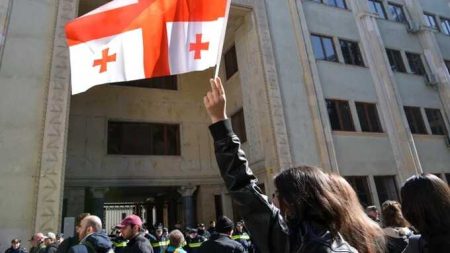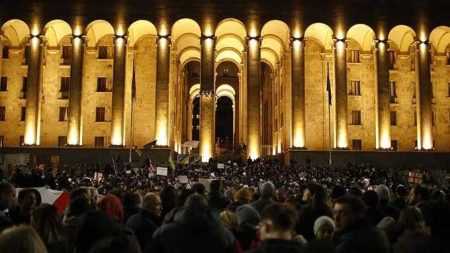After the protests started, the President of Uzbekistan suggested keeping the independence of Karakalpakstan intact.
Uzbekistan's President, Shavkat Mirziyoyev, proposed not changing the constitution to remove Karakalpakstan's independence. He made this statement on July 2 during a visit to the republic, where protests began the day before due to the decision to limit the region's independence.
“Since the process of discussing changes to the Constitution is ongoing and based on studying residents' opinions, the President highlighted the need to keep Articles 70, 71, 72, 74, 75 of the Constitution of the Republic of Uzbekistan unchanged,” — says in message press service of the head of the Uzbek state.
Articles 70-75 make up the section of Uzbekistan's fundamental law dedicated to the Republic of Karakalpakstan, also known as Karakalpakstan. According to these articles, Uzbekistan ensures Karakalpakstan's independence. The republic independently decides on its administrative structure, its borders cannot be changed without its consent, and it can secede from Uzbekistan “based on a general referendum of the people of Karakalpakstan.”
The new constitution draft of Uzbekistan includes the removal of the provisions on the sovereignty of Karakalpakstan and the republic’s right to secession. The document was opened for public discussion on June 26. On the same day, calls for protests appeared on social media. And on July 1, street actions started in the capital of the republic, Nukus. A few hours later, the Ministry of Internal Affairs reported that “the forces and means of law enforcement agencies” had restored order. The Ministry of Internal Affairs described the events of July 1 as an “unplanned march” and an “illegal demonstration.”
“As a result of misunderstanding the constitutional reforms in the republic, some citizens of Karakalpakstan engaged in unplanned marches in the city of Nukus, then gathered at the central dekhkan market and organized an illegal demonstration,” the Interior Ministry said in a July 1 report.
On July 2, a different assessment was given to the events. Jokargy Kenes (Supreme Legislative Body) of Karakalpakstan, the Council of Ministers, and the Ministry of Internal Affairs called the incident “riots” and “an attempt to seize government bodies”, and the organizers of the action – a “criminal group”.
“Under the guise of popular slogans, manipulating citizens' consciousness and trust, the organizers of the riots, refusing to obey the authorities' legitimate demands, gathered the republic's citizens in front of the administrative buildings of the Republic of Karakalpakstan. The provocateurs, with the gathered citizens, attempted to seize these state institutions and thus divide society, destabilize the socio-political situation in Uzbekistan,” the legislature said in a statement.
The authorities of Karakalpakstan reported that the organizers of the riots were detained, and the provocateurs would be found and brought to justice.
The statement mentions “certain unhealthy external forces from abroad” trying to influence the situation in the republic. The actions of law enforcement agencies in Nukus were described by the authorities as “resolute”. At the same time, Uzbek journalist Yuri Chernogaev, in an interview with BFM.ru, noted that the protests in Karakalpakstan were peaceful.
“Fortunately, they went like ordinary demonstrations in the East – everyone ran, shouted, then dispersed to teahouses and are drinking tea today. Just in case, there was a strengthening of local power structures. I personally have no doubts that everything will end peacefully,” he said.




